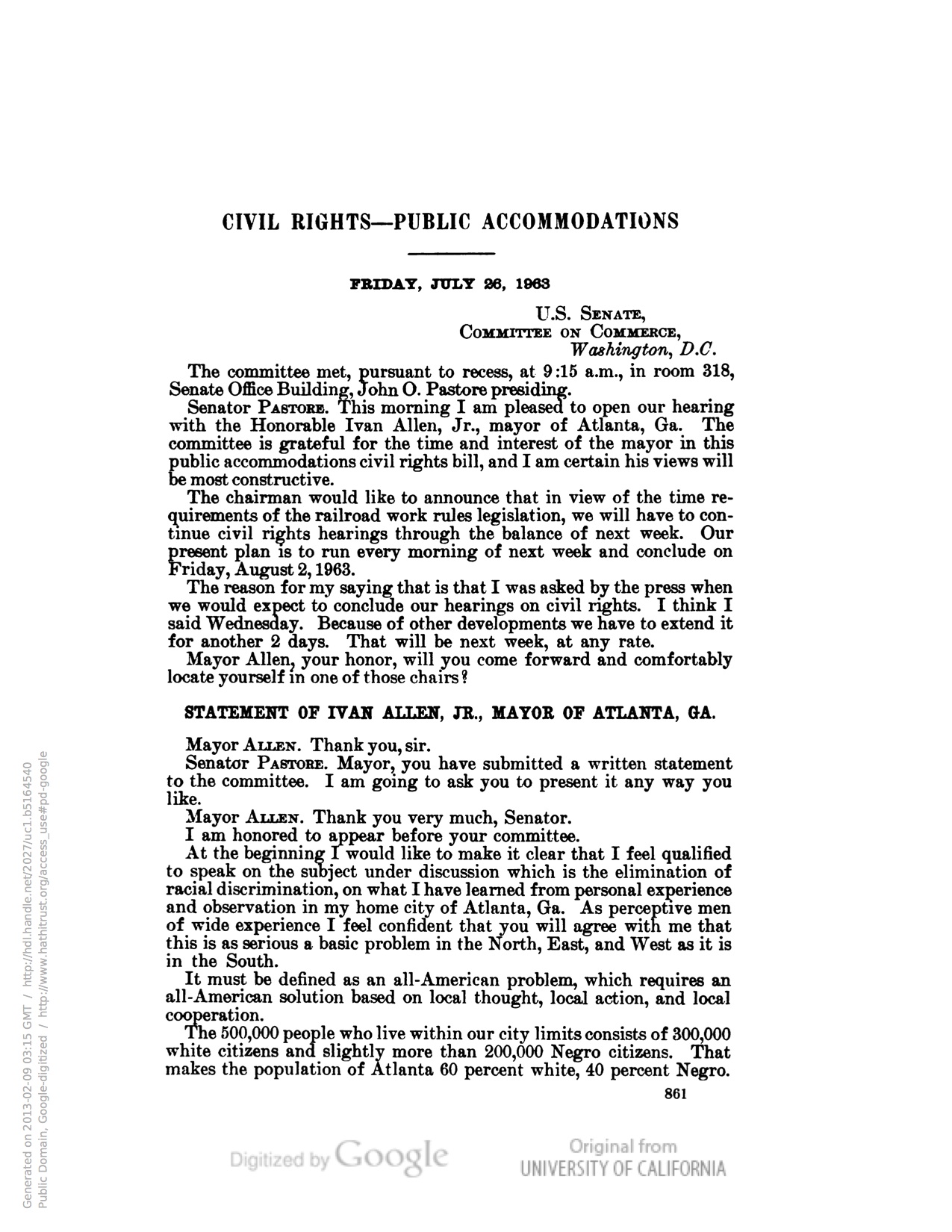Ivan Allen Jr. Biography: Congressional Testimony

In 1963, the United States was reaching a crisis in the Civil Rights movement. Violence was increasing, and frustration with the slow pace of securing basic human rights was evident in many cities, including Atlanta. Birmingham, Alabama, saw excessive brutality when police dogs and blasting water hoses were used against civil rights demonstrators in April 1963. Alabama Governor George Wallace refused to accept integration of the University of Alabama on June 11. 1963 as he stood in the school house door. White supremacists murdered Medgar Evers, the NAACP state leader in Mississippi the very next day. The March on Washington to rally for civil rights, at which Martin Luther King, Jr. gave his “I Have a Dream” speech, took place in August. The horrendous bombing of the Sixteenth Street Baptist church in Birmingham, which took the lives of four young African American girls, occurred in September.
Where Allen stands out in a politically dangerous and courageous act is in regard to his testimony before a U.S. Senate committee in favor of the desegregation of public accommodations that was to be the main part of the Civil Rights Act of 1964. At President Kennedy’s urging, Allen took an important moral stand. That the president approached Allen to go before congress and voice support for the bill indicates the high opinion Kennedy had for the mayor’s integrity and Atlanta’s efforts to desegregate peacefully. Allen was the only southern mayor to so testify and that catapulted him into a special place in civil rights history. He was brought to this point not only by unease about Atlanta’s future growth but by his own moral concerns. Although noting that the testimony would be political suicide, he felt this was the right course of action, even if it might cost him reelection and personal friends, and even if he received hate mail and death threats. He moved beyond what Hartsfield or any other southern mayor would have done. His voice was important in showing that some southern whites, including those who had been staunch segregationists, could change on racial issues and accept the federal government’s role in the transformation. This testimony put Allen at a national leadership position in civil rights and placed Atlanta at the center of those cities that would take a pragmatic stand on civil rights changes. Within the context of America in 1963, Allen’s effort was courageous and unprecedented: the mark of a true leader. As Senator John Pastore (D-Rhode Island) said after Allen spoke, “I think that President Kennedy, when he wrote Profiles in Courage, must have been thinking of men such as you.
Below is the first page of Ivan Allen, Jr's testimony before the Senate Commerce Committee.

Collection items featured on this page and other items of interest:
